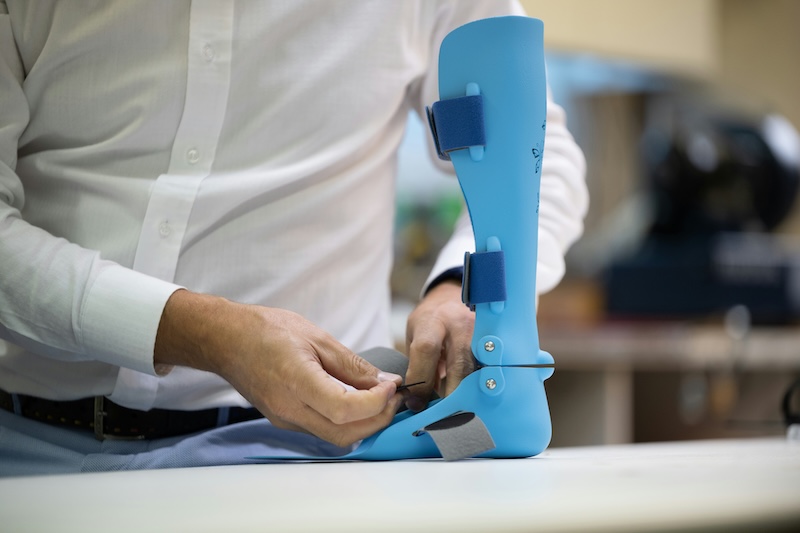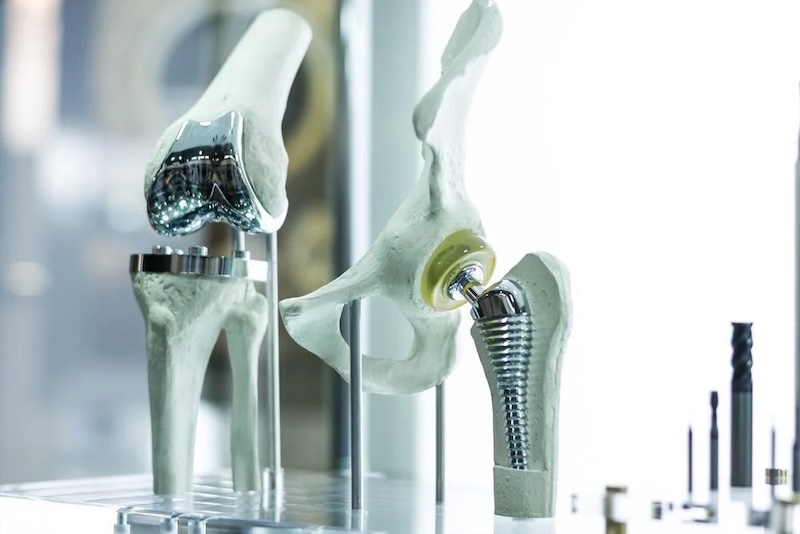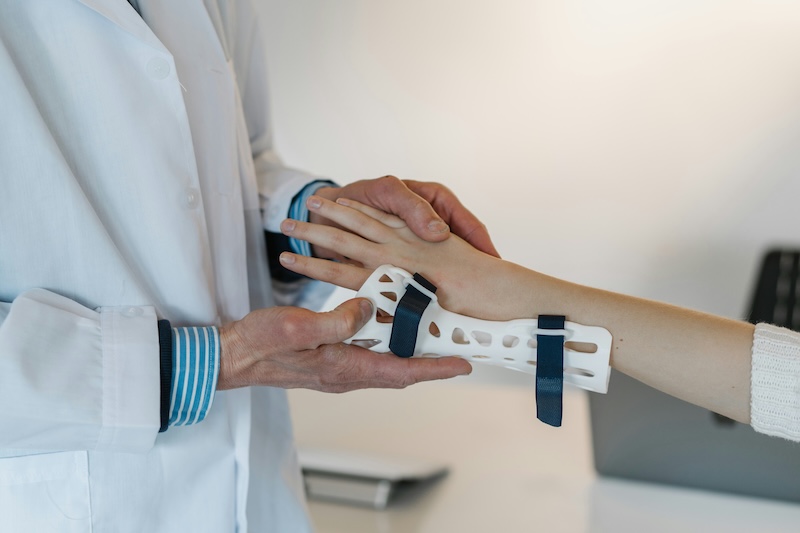Introduction: Titanium’s unique properties make it a top choice for orthopedic applications.
I’ve found that titanium’s strength, lightweight nature, and biocompatibility make it highly suitable for orthopedic use. Its ability to integrate with bone and resist corrosion ensures long-lasting and reliable performance in implants.
Titanium is ideal for orthopedic applications due to its biocompatibility, strength, and resistance to corrosion. Its biocompatibility allows titanium implants to bond naturally with bone, promoting healing and reducing the risk of rejection. The metal’s strength ensures durability under physical stress, while its corrosion resistance maintains implant integrity over time, even in the body’s harsh environment.
Exploring these advantages shows why titanium has become the standard for orthopedic implants. Its combination of biocompatibility and durability provides patients with safer, more reliable solutions for bone repair and joint replacements.
How Does Titanium’s Biocompatibility Benefit Orthopedic Applications?
One of the key reasons titanium is chosen for orthopedic applications is its excellent biocompatibility. This means titanium can be placed in the body without triggering rejection or adverse immune responses, which is essential for implant success.
Advantages of Titanium’s Biocompatibility:
• Reduced Risk of Allergic Reactions: Because titanium is non-reactive, it minimizes the risk of allergic responses, making it a safe choice for a wide range of patients.
• Encourages Bone Growth (Osseointegration): Titanium naturally bonds with bone, allowing the bone to grow around the implant for added stability.
For me, titanium’s ability to integrate with bone and reduce immune responses makes it an invaluable choice for implants. This compatibility leads to fewer complications and a higher success rate in orthopedic procedures.

Why Is Titanium’s Strength-to-Weight Ratio Ideal for Orthopedic Implants?
Titanium offers a unique balance of strength and lightness, which is essential in the body, where implants need to be robust yet not overly heavy. This strength-to-weight ratio is especially important in weight-bearing implants like hip and knee replacements.
Advantages of Titanium’s Strength-to-Weight Ratio:
• Lightweight but Durable: Titanium is strong enough to withstand daily physical stress, but its lightness ensures minimal strain on bones and surrounding tissues.
• Ideal for Load-Bearing Implants: Titanium’s durability and light weight make it suitable for applications where implants must bear significant loads.
Titanium’s high strength without added weight makes it a game-changer in orthopedic implants. Patients experience less strain on their joints and greater comfort, allowing for a more natural feel.
How Does Titanium’s Corrosion Resistance Benefit Long-Term Implant Performance?
Given the moist and chemically active environment inside the human body, metals are prone to corrosion, which can degrade implants over time. However, titanium is highly corrosion-resistant, making it an ideal material for long-term implants.
Advantages of Titanium’s Corrosion Resistance:
• Long-Term Stability: Titanium forms a natural oxide layer that protects it from degrading, which ensures that implants remain functional over many years.
• Reduced Risk of Metal Ion Release: This corrosion resistance also minimizes the release of metal ions into the body, which can otherwise lead to adverse reactions.
In my experience, titanium’s ability to withstand corrosion means implants stay intact and safe over the years, reducing the need for revision surgeries and enhancing patient safety.
Why Is Titanium’s Flexibility and Elastic Modulus Important in Orthopedics?
Titanium has an elastic modulus that is closer to that of human bone, which means it has a slight flexibility to match bone’s natural movement. This characteristic helps in distributing stress evenly, preventing damage to both the bone and the implant.
Advantages of Titanium’s Flexibility:
• Reduces Stress Shielding: Titanium’s similar elasticity to bone means it helps avoid the “stress shielding” effect, where stiffer implants take on too much load, causing surrounding bone to weaken.
• Enhances Comfort and Longevity: This flexibility ensures implants move with the body, improving comfort and reducing wear over time.
Titanium’s compatibility with bone movement is invaluable. It ensures that the implant feels more natural and promotes bone health by allowing better stress distribution, which is key to long-term implant success.

How Does Titanium’s Formability and Versatility Support Custom Orthopedic Solutions?
Titanium is highly malleable, allowing it to be shaped and adapted to various implant designs. This makes it easy to create customized solutions tailored to a patient’s specific anatomy, improving the fit and function of each implant.
Advantages of Titanium’s Formability:
• Supports Custom Implants: Titanium’s ability to be precisely shaped means I can work with it to create custom-fit implants that match each patient’s unique needs.
• Compatible with Advanced Manufacturing Techniques: Titanium is compatible with technologies like 3D printing, making it possible to produce complex, patient-specific implants for better outcomes.
In my experience, titanium’s versatility is crucial in orthopedics, as it allows for personalized care and high adaptability, leading to improved recovery and functionality.
Why Does Titanium Provide a Long-Term Solution in Orthopedic Implants?
Titanium’s durability and stability make it a preferred choice for implants that need to last for decades. Once placed, titanium implants maintain their integrity and strength, reducing the chances of needing a replacement.
Advantages of Titanium for Long-Term Use:
• Consistent Structural Integrity: Even after years, titanium implants remain strong and effective, reducing the risk of breakdown and replacement surgeries.
• Improved Quality of Life: With reliable, long-lasting implants, patients can enjoy a better quality of life, free from the discomfort associated with worn-out implants.
For anyone considering an implant, titanium offers peace of mind with its long-lasting reliability. This durability means fewer complications over the years, contributing to better outcomes and a higher quality of life.
Claim: Why Titanium Is the Ideal Choice for Orthopedic Applications
Titanium’s unmatched biocompatibility, strength-to-weight ratio, corrosion resistance, flexibility, formability, and longevity make it a standout material for orthopedic applications. These properties ensure patient safety, comfort, and satisfaction, making titanium the leading choice in medical implants.
Conclusion: Why Titanium is the Preferred Choice for Orthopedic Implants
From hip replacements to spinal supports, I’ve come to see how titanium’s unique properties meet all the critical demands of orthopedic implants. Its biocompatibility, strength, resistance to corrosion, and adaptability make it an ideal material for ensuring long-term success and patient comfort.
In my view, titanium provides a reliable, safe, and durable solution for orthopedic needs. Its flexibility, strength, and ability to bond naturally with bone help patients regain mobility and improve their quality of life, which is why I believe titanium is the best choice in medical technology.






